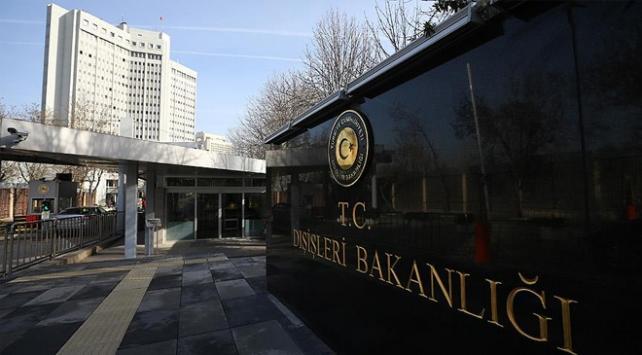EurActiv (19 June 2019)
The EU said Tuesday (18 June) that eight of its 28 member countries aim to phase out coal-powered electricity by 2030, triggering charges it is missing the mark under the Paris climate deal.
The European Commission, the EU’s executive arm, said it received the pledges as contributions to the bloc’s efforts to deliver on the landmark 2015 deal.
“More and more member states are making the political commitment to phase out coal in the next decade,” EU climate and energy commissioner Miguel Arias Cañete said.
Cañete said that among the European Union countries introducing or confirming such timelines, France intends to phase out coal by 2022 – before Italy and Ireland by 2025.
Denmark, Spain, the Netherlands, Portugal and Finland aim to do so by 2030, the Spanish commissioner told a press conference in Brussels.
Standing by Cañete, commission vice president Maroš Šefčovič called the pledges “quite a significant signal coming from quite an important number of member states.”
The commission added that Germany, the EU’s most powerful economy and biggest polluter, has also indicated it will set “an end date” for coal-based electricity.
Germany urged to stand firm on coal phase-out
Minister-President of North Rhine-Westphalia Laschet intends to close fewer coal-fired power stations than envisaged by the coal commission. Three of its members are exerting pressure on the federal government to push forward closures as quickly as possible. EURACTIV Germany reports.
An EU official told AFP the remaining 20 countries, including heavily coal-dependent Poland, had not submitted timelines for weaning themselves off the fossil fuel.
Berlin-based Climate Analytics said the impact of the pledges was limited as the eight countries account for less than 20% of the EU’s total installed coal capacity.
Under current pledges, “40% of current capacity will still be online in 2030,” the research institute’s Paola Yanguas Parra told AFP.
“This is highly inconsistent with the Paris Agreement, which requires a full phase out in the EU by 2030,” Yanguas Parra said in an email.
“Strong signal”
“Germany, which currently accounts for around one third of the EU’s coal capacity, is discussing exiting coal between 2035 and 2038,” the policy analyst said.
“It could provide a strong signal to its European neighbours by moving away from coal more quickly,” she added.
The EU official said meanwhile the commission was also waiting for the initial eight countries to detail how they will achieve the coal phaseout.
Not only must they show how they will finance the shift but what green energy source they will use to replace coal, according to the official who spoke on condition of anonymity.
Under the 2015 Paris treaty, the EU pledged to reduce its carbon emissions by 40% below 1990 levels by 2030.
During its review on Tuesday, the commission said the bloc is on track to meet that goal but was falling short on its target for renewable energy use and energy savings.
National energy and climate plans will not meet targets, EU warns
UPDATE: The European Commission warned EU countries today (18 June) that draft national plans for the coming decade are insufficient to achieve the bloc’s 2030 energy and climate targets. “Substantial” gaps have been identified on renewables and energy efficiency.
No place for fossil fuels by 2050
Referring to coal plants, Cañete said it is “pretty clear” that fossil fuels have no place in a carbon-neutral economy the commission hopes EU countries endorse for 2050.
EU leaders set to meet in Brussels on Thursday and Friday are to discuss the proposal for zero greenhouse gas emissions, where the bloc produces no more than it absorbs.
22 countries, including Germany, now endorse the 2050 carbon neutrality target, according to the latest count.
EU sources said leaders would more likely support the goal at their summit in December rather than this week’s meeting.
“There are too many coal-fired power plants in eastern Europe that would have to be taken off the grid,” an EU diplomat told AFP.
No comments yet.
- KUWAIT EMIR ARRIVES IN IRAQ ON RARE VISIT Iraq 19.06.2019
- AZERBAIJAN ATTACHES GREAT IMPORTANCE TO CLOSE COOPERATION WITH MALAYSIA The Caucasus and Turkish-Armenian Relations 19.06.2019
-
 TURKEY-AZERBAIJAN RELATIONS TO FURTHER STRENGTHEN – FM
The Caucasus and Turkish-Armenian Relations
19.06.2019
TURKEY-AZERBAIJAN RELATIONS TO FURTHER STRENGTHEN – FM
The Caucasus and Turkish-Armenian Relations
19.06.2019
-
 3 IRAQIS WOUNDED IN ROCKET ATTACK ON HOUSING SITES OF FOREIGN OIL FIRMS IN BASRA
Iraq
19.06.2019
3 IRAQIS WOUNDED IN ROCKET ATTACK ON HOUSING SITES OF FOREIGN OIL FIRMS IN BASRA
Iraq
19.06.2019
- ROMANIA’S OPPOSITION FAILS TO OVERTHROW GOVERNMENT WITH NO-CONFIDENCE MOTION The Balkans 19.06.2019
-
25.01.2016
THE ARMENIAN QUESTION - BASIC KNOWLEDGE AND DOCUMENTATION -
12.06.2024
THE TRUTH WILL OUT -
27.03.2023
RADİKAL ERMENİ UNSURLARCA GERÇEKLEŞTİRİLEN MEZALİMLER VE VANDALİZM -
17.03.2023
PATRIOTISM PERVERTED -
23.02.2023
MEN ARE LIKE THAT -
03.02.2023
BAKÜ-TİFLİS-CEYHAN BORU HATTININ YAŞANAN TARİHİ -
16.12.2022
INTERNATIONAL SCHOLARS ON THE EVENTS OF 1915 -
07.12.2022
FAKE PHOTOS AND THE ARMENIAN PROPAGANDA -
07.12.2022
ERMENİ PROPAGANDASI VE SAHTE RESİMLER -
01.01.2022
A Letter From Japan - Strategically Mum: The Silence of the Armenians -
01.01.2022
Japonya'dan Bir Mektup - Stratejik Suskunluk: Ermenilerin Sessizliği -
03.06.2020
Anastas Mikoyan: Confessions of an Armenian Bolshevik -
08.04.2020
Sovyet Sonrası Ukrayna’da Devlet, Toplum ve Siyaset - Değişen Dinamikler, Dönüşen Kimlikler -
12.06.2018
Ermeni Sorunuyla İlgili İngiliz Belgeleri (1912-1923) - British Documents on Armenian Question (1912-1923) -
02.12.2016
Turkish-Russian Academics: A Historical Study on the Caucasus -
01.07.2016
Gürcistan'daki Müslüman Topluluklar: Azınlık Hakları, Kimlik, Siyaset -
10.03.2016
Armenian Diaspora: Diaspora, State and the Imagination of the Republic of Armenia -
24.01.2016
ERMENİ SORUNU - TEMEL BİLGİ VE BELGELER (2. BASKI)
-
AVİM Conference Hall 24.01.2023
CONFERENCE TITLED “HUNGARY’S PERSPECTIVES ON THE TURKIC WORLD"









